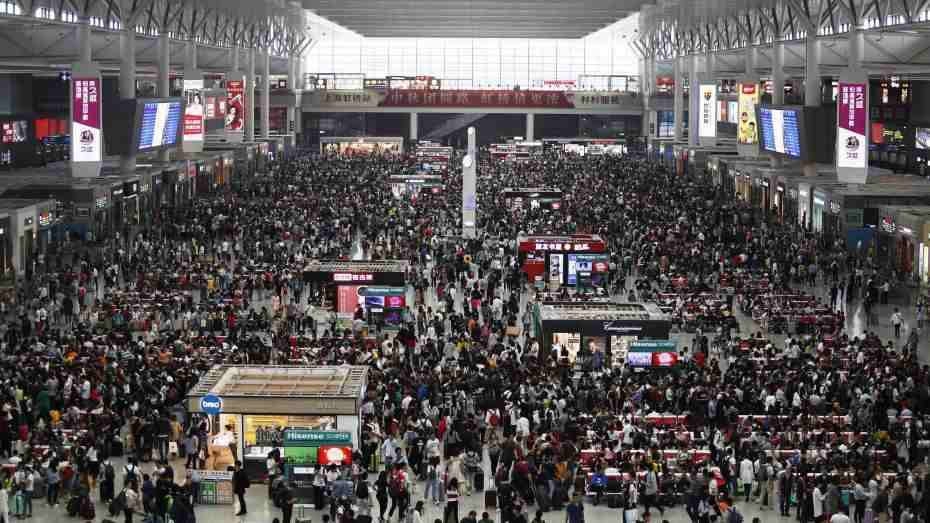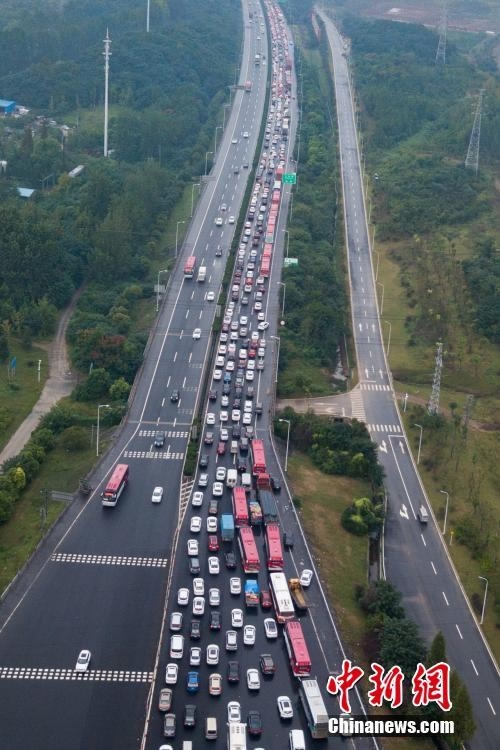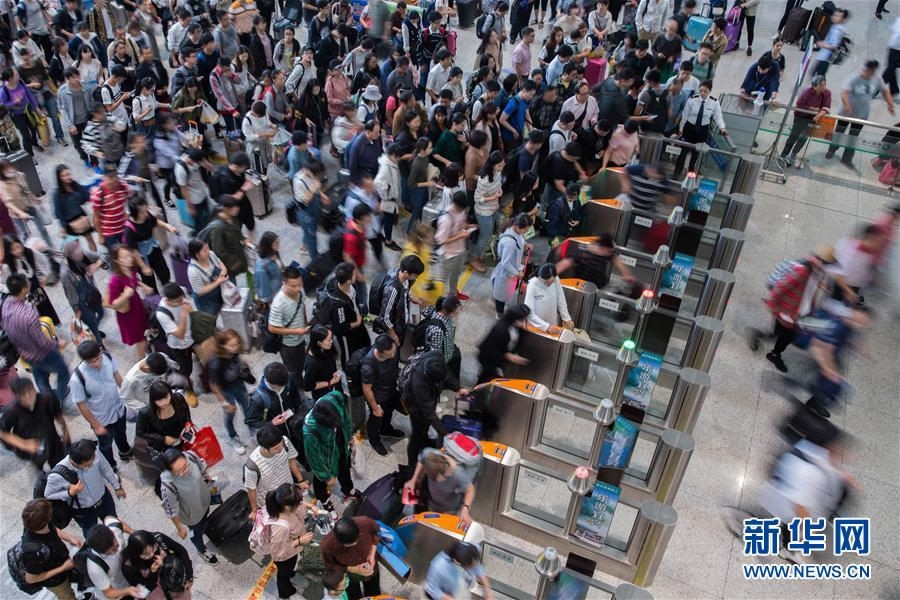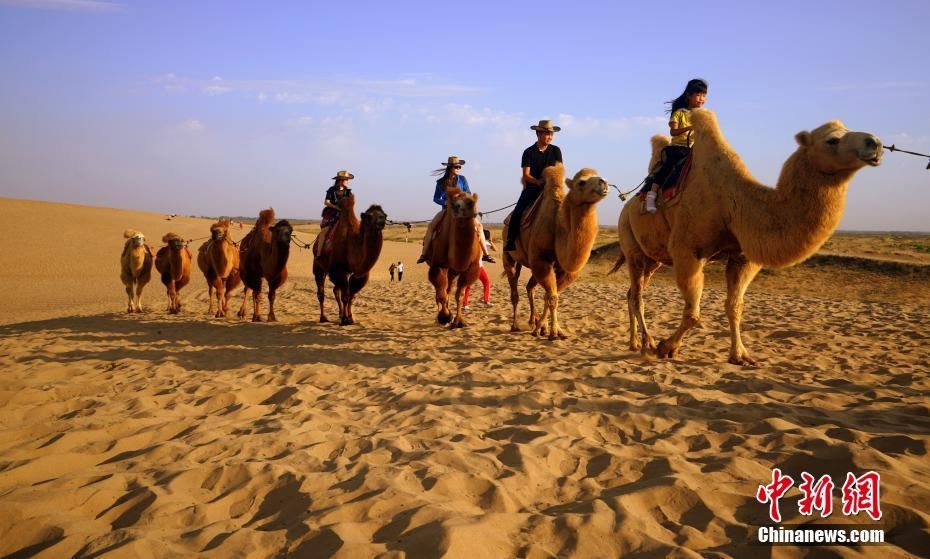
Opinions
09:43, 01-Oct-2017
Holiday making: China vs the West
Guest commentary by Guojiren

China’s National Day holiday is here again. It is estimated that about 600 million Chinese will travel during Golden Week. Most people applaud this as more and more Chinese can afford travel, but I deplore it. After watching tens of millions of people hit the road, crowd the tourist areas, flood cities and towns each year, I have to say there’s something wrong.
In September 1999, Golden Week started when the Chinese government decided to increase the number of days off to seven during legal holidays – Chinese New Year and the National Day which falls on October 1.

Vehicles queue up on the 2nd Nanjing Yangtse River Bridge, on National Day, October 1, 2017. /Chinanews Photo
Vehicles queue up on the 2nd Nanjing Yangtse River Bridge, on National Day, October 1, 2017. /Chinanews Photo
In the last 18 years, the number of travelers during the National Day holiday has grown by 20 times. Of course, this proves that the Chinese are now enjoying greater freedom of mobility. But, this astronomical number has put extreme strain on traffic, public transport, hotels and restaurants as well as all other services. Tourists are often stuck in traffic for hours before getting to their destinations. Every tourist spot is so over-crowded that people have to fight for room. All they see are people, not scenery. This also puts public safety at risk. A much anticipated holiday often turns out to be frustrating and anger-inducing, instead of relaxing and fun. This is not what Golden Week was originally intended to be. Should we have additional or longer paid leaves so that people can spread their travel throughout the year rather than squeezing it into a single Golden Week? Is there a similar phenomenon in other countries?

On the eve of National Day holiday, September 30, 2017 /Xinhua Photo
On the eve of National Day holiday, September 30, 2017 /Xinhua Photo
I have to say the problem is also due to the way the Chinese spend their holidays. In China, people refer to holidays as travel or play, whereas their western counterparts call it vacationing or holiday making. After the holiday, the Chinese would ask each other where did you Wan? It is literally translated as where did you play or have fun? Chinese tourists prefer to go to as many places as possible for sightseeing rather than stay at one place like most of their western counterparts do. They would rush from one scenic spot to another, without much time to really appreciate the beauty of nature or cultural relics.

A tourist enjoys the scenery of maples in Yangzhou city, east of China’s Jiangsu Province, September 24, 2017. /Chinanews Photo
A tourist enjoys the scenery of maples in Yangzhou city, east of China’s Jiangsu Province, September 24, 2017. /Chinanews Photo
The sheer number of travelers seems to show that the percentage of Chinese going on holiday is huge. But numbers can be deceiving. This number includes many people who simply go back to their hometown to visit their families. China has the largest number of migrant workers and people who work away from their hometowns. As a matter of fact, many Chinese are extremely hard-working but do not know how to enjoy life. The Chinese are known for their hard-working spirit and thriftiness. In the past, being hardworking and thrifty were not only virtues, but also a must as the Chinese had to struggle just to survive. Now, as more and more Chinese accumulate wealth, this tradition still carries on. Often they would prefer not to travel only for the sake of saving money especially the older generation, though the number of people travelling is on the rise. They are saving money for their retirement and for their children. Of course, this workaholic spirit contributes a lot to China’s fast development. But, I have to say that the Chinese should learn from their western counterparts and take more time to enjoy life. Why not stop your footsteps and spend more time relaxing on the sunny beaches, in tranquil small towns and villages, in museums and in theaters? What matters most is not how much money you make but how you spend it. After all, money is not just to be made, it’s also for spending. It’s made to lift up the quality of life, materially and spiritually.

Tourists ride on camels in the Shahu scenic spot in the west of China’s Ningxia Hui Autonomous Region, September 23, 2017. /Chinanews Photo
Tourists ride on camels in the Shahu scenic spot in the west of China’s Ningxia Hui Autonomous Region, September 23, 2017. /Chinanews Photo
In the West, vacationing is a must, while in China, it is still a luxury. However, I have to say that people in the West also need to reflect upon their lifestyle and learn one or two things from the Chinese. Because western countries are highly developed and enjoy employee benefits such as paid leave, healthcare and others, people have money to spend on vacations and don’t need to worry about their retirement or their children. And they would spend as much as they can earn. Many don’t save money, and even spend tomorrow’s money. What’s worse is that many don’t have the motivation to work hard. While the Chinese are willing to work extra hours, people in the West would not bother to do extra work. That’s one of the reasons why some western economies are becoming stagnant. The society lacks the energy and vitality that China is now enjoying. So, in the post-modern society in the West, people need to look for new motivation, impetus and energy to work a little bit harder. Accumulating some money and not a lot debt for your children and your country! And in the fast-growing China, people need to take a break from their fast pace of life for relaxation and recreation. Spending money before getting too old or too sick. Finally, I have to ask – is there a fine balance between working hard and enjoying life? Is there a meeting point between the East and West?

SITEMAP
Copyright © 2018 CGTN. Beijing ICP prepared NO.16065310-3
Copyright © 2018 CGTN. Beijing ICP prepared NO.16065310-3